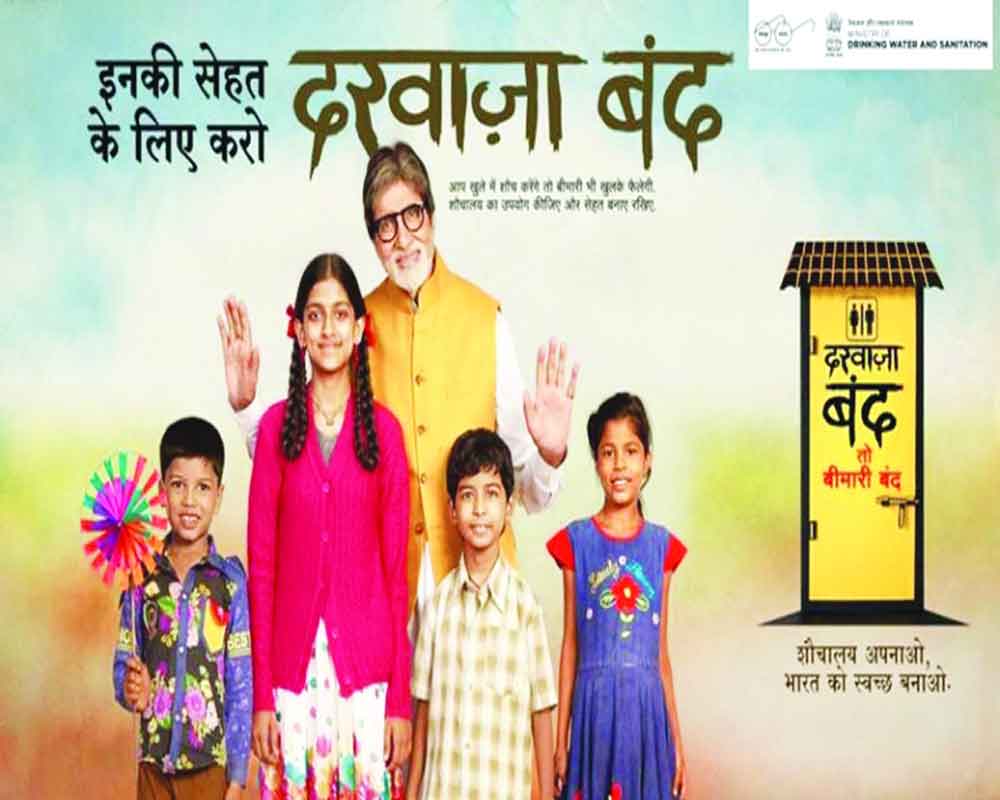Inspiring but lesser known to the world, Bindeshwar Pathak, a visionary, started over five decades back a movement to make India open defecation free and restore human rights and dignity to manual scavengers
After taking over as the Prime Minister in May 2014, Narendra Modi has put in a great deal of effort to make Mahatma Gandhi’s dream of making India “swachchh” a reality. “Swachchh Bharat Mission” is the flagship programme to achieve that goal.
However, the ambitious target of Swachchh Bharat has its own set of challenges. The hardest one is to make India open defecation free. On the the 150th birth anniversary of Mahatma Gandhi this year, the PM declared the rural India open defecation free.
Ending open defecation, creating cities and villages free of litter and stagnant water, and cleaning up air are essential for long and healthy lives of people. By galvanising the nation on the issue of sanitation, Modi has connected with the culture of cleanliness that was the hallmark of the admirable Indus Valley Civilisation; and for this, he will be gratefully remembered by posterity.
However, there are also many inspiring people lesser known to the world, like Dr Bindeshwar Pathak, a visionary who started over five decades back a movement to make country open defecation free and restore human rights and dignity to the manual scavenger (cleaners and carrier of human excreta as headload) community. Pathak’s endeavour paved the way for the biggest sanitation drive in India. Every Indian knows of Sulabh Shauchalaya, but not many know the story of the man behind the sanitation giant: Dr Bindeshwar Pathak.
India is a wonderful nation but it also has strange traditions. People get up early in the morning and go for defecation in open in the absence of toilet facilities in their houses.
In India, the inhuman, unhealthy and unhygienic practice of cleaning human excreta manually by scavengers is in existence in some parts of the country. Before Independence, this practice continued in the Buddhist, Mauryan, Mughal and British periods. The scavengers were humiliated and insulted, even by those in whose houses they went to clean toilets. They had to clean bucket toilets before sunrise so that nobody could see or touch them.
In medieval period they were made to wear bells around necks so that on hearing the sound, people could move away from them. Nobody would touch them while giving them food or water. They had to live on the village outskirts. Their children could play only with pigs and animals. There was no question of their going to school or entering temples.
Mahatma Gandhi was the first person whose attention was drawn towards the plight of scavengers. He wanted scavengers to be relieved from their sub-human occupation of cleaning human excreta manually and wished to restore human rights and dignity to them. He gave priority to clean India over the independence of the country. The two biggest dreams of Gandhi were freedom from British rule and clean India. Indians joined his movement to ensure that the first dream became a reality. However, the second dream “clean India” remains unfulfilled.
After Gandhi’s death, many committees were formed by Governments to find out the solution to the problem of scavenging. Almost all committees suggested only improvements in the working and living conditions of the manual scavengers, none could give a solution to the problem.
At this juncture, India saw a messiah for the manual scavengers in Bindeshwar Pathak, who has championed sanitation and the uplift of the untouchables as mission of his life. For the last five decades, he has been working relentlessly to keep the ecosystem clean and bring the marginalised sections of society in the mainstream. He gave new dimension to the Gandhian movement and broad-based his principled fight against all kind of discrimination.
In the process of providing alternative to scavenging and rehabilitation and social upgradation of scavengers, Pathak created a pan-Indian network with 60,000 dedicated and committed volunteers and gave birth to a mini revolution which is popularly known as Sulabh Sanitation and Social Reform Movement.
Lack of sanitation and access to toilets has been a major problem throughout India. Rural sanitation remained almost nonexistent and hardly half per cent of the urban population had access to adequate sanitation in 1991 (according to WHO). It was a coincidence that in 1968 a brilliant young social scientist of hardly 26 years emerged to solve the problem of sanitation and related untouchability.
This is the story of Dr Bindeshwar Pathak from a village in Vaishali district, Bihar, belonging to an affluent Brahmin family.
An incident which happened during those days in Pathak’s life left a scar on his impressionable mind but led to determination later to help and improve the plight of India’s untouchables particularly “scavengers”. He once touched a women dom (an untouchable) in the village in his grandparent’s house. Unfortunately, his grandmother saw him. Despite his mother’s protest, she made young Pathak to swallow cow-dung, sand and Ganga water to purify his soul because he had “committed” a sin by touching an untouchable. This incident left a deep and lasting impression on his mind. Pathak has recollected these events on public platforms.
(The writer is an environmentalist)


























